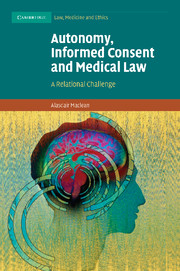Introduction
Published online by Cambridge University Press: 02 July 2009
Summary
The patient who is armed with information, who wants to ask questions, sometimes difficult and awkward questions, should be seen as an asset in the process of care and not an impediment to it.
Sir Liam Donaldson, the Chief Medical Officer (CMO).In recent years the healthcare professions have been rocked by a number of high-profile scandals including the murderous activities of Harold Shipman and Beverly Allitt, the issue of organ retention and the problems of paediatric cardiac surgery at the Bristol Royal Infirmary (BRI). In addition to these, the cost of clinical negligence litigation and adverse events in general have further focused the government's attention on healthcare practice. The BRI Inquiry's remit included making recommendations to improve the quality of care in the NHS, with patient-centred care forming a bedrock principle underlying the recommendations.
A crucial part of developing a patient-centred service was the need to ‘[encompass] the notions of respect for and honesty towards patients’. Thus, not only was it important to focus on the mechanics of healthcare but also on the attitudes of the healthcare professionals. For the Inquiry the way forward was to encourage a partnership between the professionals and the patients. It noted that, while healthcare professionals were in general dedicated to the good of the patient, there was a persistent and entrenched culture of paternalism that tended to exclude patients by limiting information and discouraging them from asking questions.
- Type
- Chapter
- Information
- Autonomy, Informed Consent and Medical LawA Relational Challenge, pp. 1 - 6Publisher: Cambridge University PressPrint publication year: 2009

